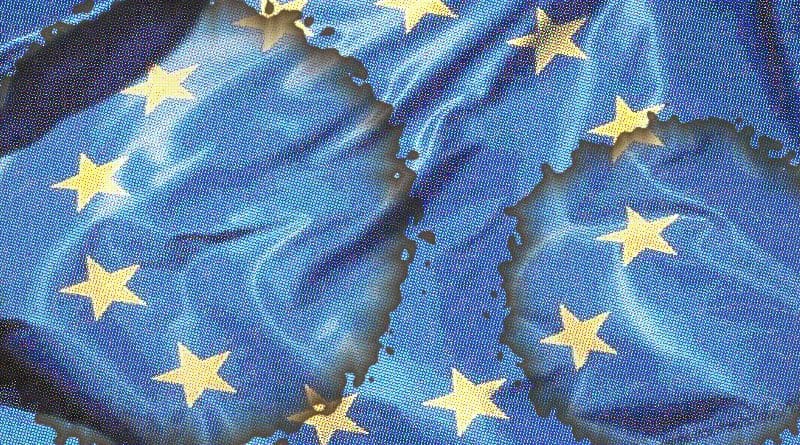Will The EU Survive Lethal Crisis? – OpEd
As the mainstream media try to put a lid on the emerging economic crisis in the US and the Euro zone and distract the attention of the international community from it, more Western governments adopt austerity measures to confront what is said to be one of the most injurious and detrimental economic recessions in the contemporary history.
In point of fact, the economic downturn started in 2008 and was triggered by “a complex interplay of valuation and liquidity problems in the United States banking system.” The crisis-stricken United States spread the virus throughout the world and many countries, from the Southeast Asian nations to Russia and Western Europe, were enormously affected. Although the recession practically began three years ago, its repercussions still can be felt all around the world and only a few independent countries without economic dependence on the US and the EU have survived the pandemic.
It’s notable to point out that the EU member states such as Greece, Ireland, Romania, Latvia, Spain, Bulgaria and Norway and those countries which had a greater degree of dependence on the US and the EU have had the lowest amount of real GDP growth rate last year, as reported by the International Monetary Fund.
Among the most prominent symptoms of the financial crisis in the West are skyrocketing unemployment, diminution of consumer confidence, the continuing decline in home values and increase in foreclosures and personal bankruptcies, federal debt crisis, inflation and rising food and gas prices.
In 2010, Czech Republic, Ireland, Italy, Japan, Romania and Spain introduced severe austerity measures including a considerable reduction in the amounts of benefits and public services provided along with increasing taxes to cope with the government deficit spending while Germany, Greece, Portugal and the United Kingdom adopted the same measures in 2011.
However, it’s said that Greece is facing the worst economic recession among the Western countries. As the heads of states of the G20 are gathering in Cannes to discuss the latest developments in the Euro zone and find solutions to have their countries extricated from the recession, media reports show that the crisis in Greece has dominated the G20 preparations.
Amid growing protests by the lawmakers of Greece at the mismanagement of the domestic economy and jeopardizing the country’s membership in EU, Greek Prime Minister George Papandreou said on Wednesday that he would push ahead with a referendum on an EU bailout deal which he called would be “a clear mandate and a clear message in and outside Greece on our European course and participation in the euro,” Reuters reported.
“The most immediate hurdle” which Papandreou is facing is the impeachment motion which will be decided on Friday. He has assured the Greek citizens that he will win a confidence vote from the parliament once again and carry out the referendum as it was planned.
This comes while Desmond Lachman, a resident fellow at the American Enterprise Institute believes that the Greek Prime Minister has a difficult task to deal with. “Mr. Papandreou’s desperate gamble to now call a referendum has to be seen against the backdrop of a Greek economy in virtual free-fall under the weight of IMF-imposed austerity and a country bordering on ungovernability. His highly risky gambit will almost certainly lead to the fall of the Papandreou government, which will compound Greece’s already chronic economic and political woes,” he wrote in a New York Times article.
On the other hand, Vanessa Rossi, an economic advisor to Oxford Analytica believes that the prospect of Greece’s economy will not influence the EU remarkably, “The euro zone’s survival has very little to do with Greece. The Greek economy is too small to cause any noticeable impact on the euro zone and even the widespread and substantial financial contagion of a default can be absorbed.”
According to Financial Times, Germany’s chancellor Angela Merkel and French President Nicolas Sarkozy summoned Greek PM for emergency talks on Wednesday. They urged him to implement the decision adopted at the Eurozone summit which are said to be more necessary than ever today.
Now, the G20 leaders who are anticipated to be welcomed by the massive demonstrations of anti-globalization protesters in Cannes, Nice and other French cities have a blurred and obscure perspective of what the future might bring to them and their countries. It’s said that the European leaders, headed by Nicolas Sarkozy, want to appeal to the Asian nations, especially China, to back and fund their bailout plans for the banks which are going bankrupt in the Euro zone, especially the banks of Italy and Luxemburg.
“French President Nicolas Sarkozy, who plays host to this year’s G20 summit, has already approached Beijing about investing in the European Financial Stability facility through a so-called special investment vehicle,” CNN reported.
Lo and behold, the G20 leaders and the politicians in Euro zone are facing a big question mark. Will they be able to rescue their countries from the unprecedented economic slump and quash the anger of their people at the deteriorating living conditions?

